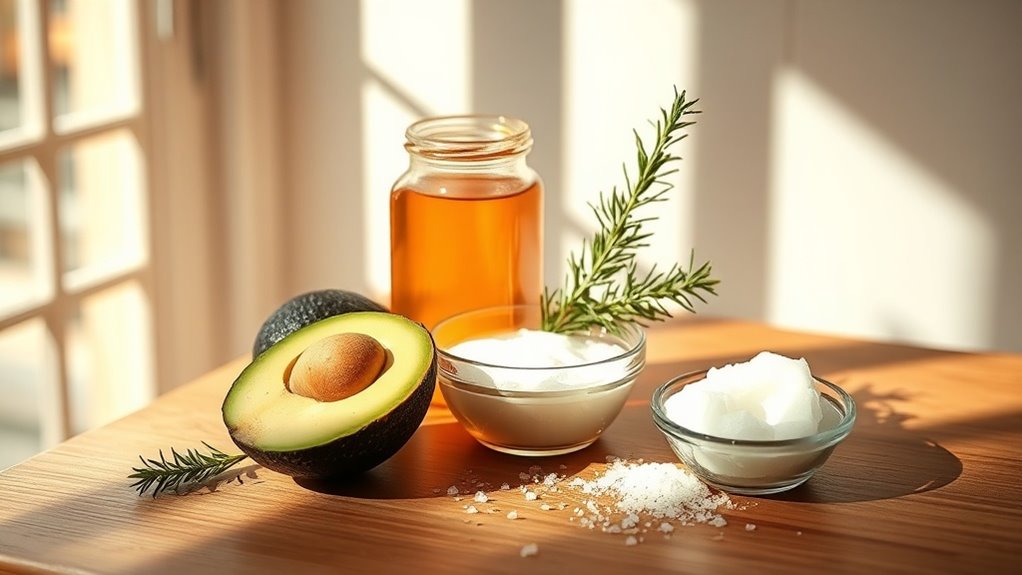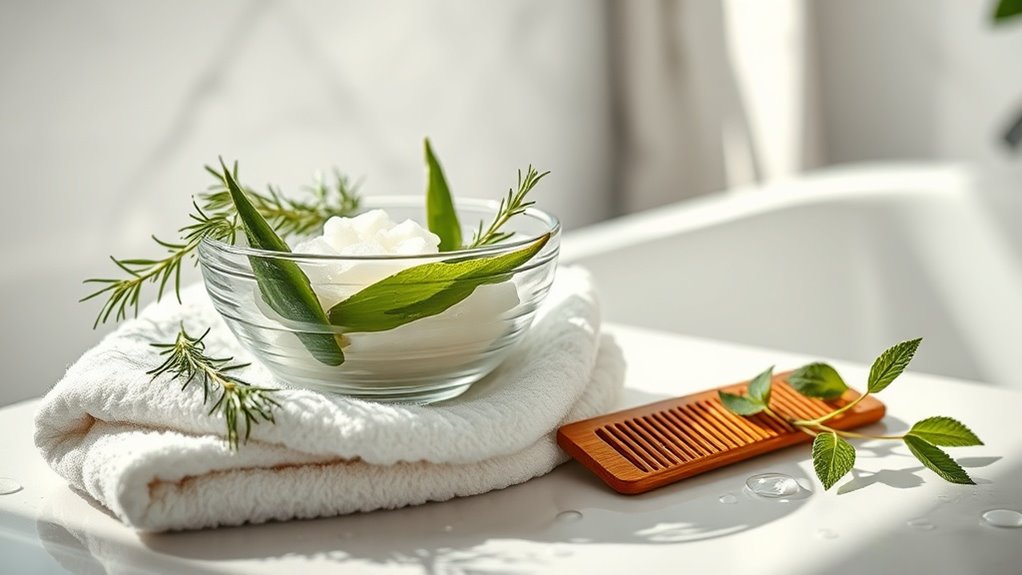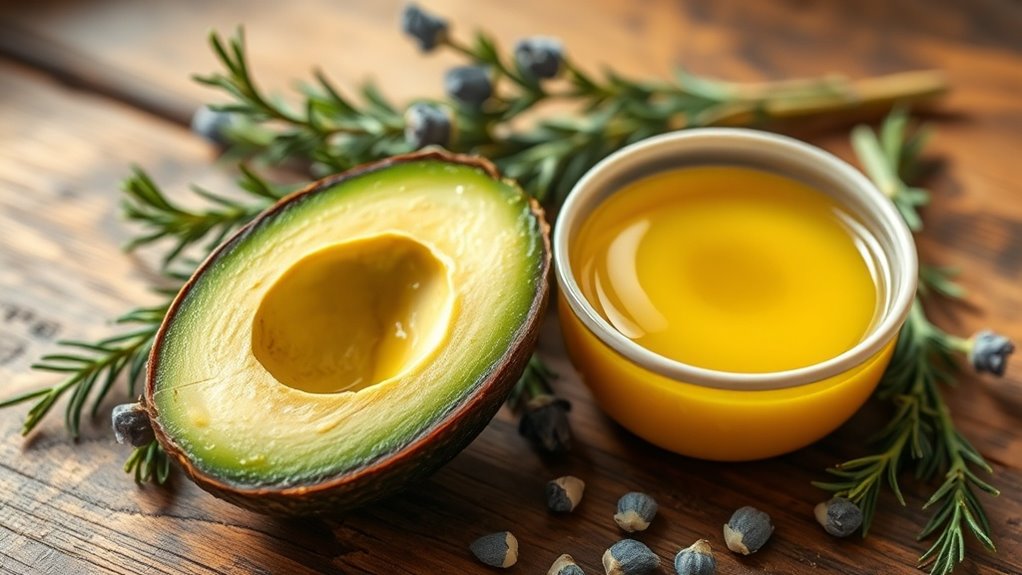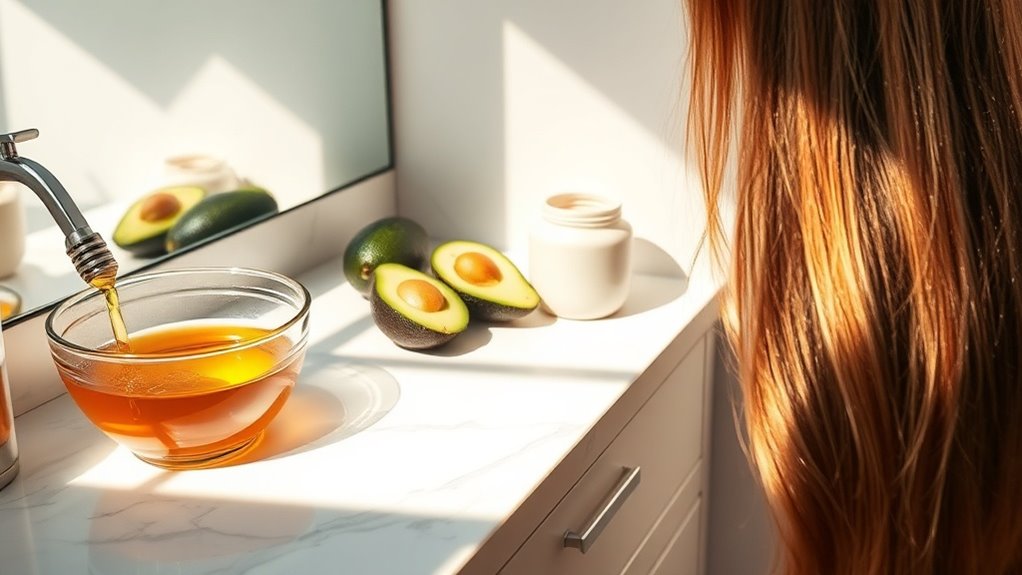The Best Natural Fix for Dry, Itchy Scalp You Haven’t Tried Yet
If you’re struggling with a dry, itchy scalp, you might be overlooking a simple, yet effective solution—aloe vera. This natural remedy not only hydrates but also combats inflammation and microbes that contribute to irritation. By combining it with other nourishing ingredients, you can create a powerful treatment. Curious about how to harness the full potential of aloe vera and other natural ingredients for relief? Let’s explore the options that could transform your scalp health.
Key Takeaways
- Try aloe vera gel for its hydrating properties and anti-inflammatory benefits to soothe irritation and reduce flakiness on the scalp.
- Use coconut oil as a deep conditioner to restore moisture and combat dandruff, leaving it on for at least 30 minutes.
- Incorporate tea tree oil into your routine for its potent antifungal and antibacterial properties that target dandruff-causing fungi effectively.
- Create a DIY mask by mixing coconut oil with honey to nourish your scalp and enhance moisture retention naturally.
- Maintain a balanced diet rich in Omega-3 fatty acids, vitamins A and E, and zinc to support scalp health from within.
Understanding the Causes of Dry, Itchy Scalp
A dry, itchy scalp can be frustrating, and understanding its causes is the first step toward relief.
Various factors contribute to this condition, including environmental elements like dry air or excessive heat, which can strip your scalp of moisture. Additionally, certain hair products may irritate your skin, leading to dryness. Medical conditions such as eczema or psoriasis can also be culprits. Scalp health is crucial for maintaining overall hair vitality, as an unhealthy scalp can lead to hair thinning or loss.
Identifying the root cause is essential in finding an effective dry scalp natural remedy.
The Power of Aloe Vera for Scalp Relief
Aloe vera stands out as a remarkable natural remedy for alleviating dry, itchy scalp issues.
Aloe vera is an exceptional natural solution for soothing dry, itchy scalp problems.
Its soothing properties can provide significant relief.
Here’s how aloe vera can help you:
-
Moisturizes: Aloe vera hydrates the scalp, preventing dryness and flakiness.
-
Reduces Inflammation: Its anti-inflammatory compounds calm irritation and redness, promoting a healthier scalp.
-
Antimicrobial Benefits: Aloe vera contains compounds that fight dandruff-causing fungi and bacteria, reducing itchiness.
Incorporating aloe vera into your hair care routine can make a noticeable difference, as studies show that natural ingredients can stimulate faster hair growth and improve scalp health.
Whether you use it as a gel or in a spray, your scalp will thank you for the relief.
Coconut Oil: A Multi-Functional Moisturizer
For those seeking additional relief from a dry, itchy scalp, coconut oil emerges as a powerful ally.
Rich in fatty acids, it penetrates deeply, providing intense hydration and restoring moisture balance. Its antimicrobial properties can also help combat dandruff and scalp infections, promoting a healthier environment for hair growth. Additionally, coconut oil can be combined with natural hair masks for enhanced moisture retention and nourishment.
Simply warm a small amount of coconut oil, apply it directly to your scalp, and massage gently. Leave it on for at least 30 minutes or overnight for maximum benefit.
Regular use not only soothes irritation but also adds shine and vitality to your hair, making it a versatile solution.
Essential Oils That Soothe and Nourish
Essential oils serve as potent remedies for soothing and nourishing a dry, itchy scalp.
Incorporating these oils into your scalp care routine can offer significant relief.
Here are three essential oils you should consider:
-
Tea Tree Oil: Known for its antifungal and antibacterial properties, it helps combat dandruff and soothes irritation.
-
Lavender Oil: This oil not only calms the mind but also promotes hair health and reduces itching.
-
Peppermint Oil: Its cooling effect increases circulation, providing relief and nourishment to the scalp.
Using these oils can enhance your scalp health and restore balance effectively. Additionally, you can create a DIY natural hair softening treatment that complements your scalp care routine for even better results.
DIY Scalp Masks to Try at Home
Incorporating the benefits of essential oils into your hair care routine can be even more effective when combined with DIY scalp masks. These masks can hydrate and soothe your scalp, reducing dryness and itchiness. Here are some simple recipes:
| Mask Ingredients | Benefits |
|————————|——————————-|
| Coconut Oil + Honey | Moisturizes and nourishes |
| Avocado + Olive Oil | Rich in vitamins, soothes |
| Yogurt + Aloe Vera | Hydrates and calms irritation |
| Apple Cider Vinegar + Water | Balances scalp pH |
Try these masks weekly for optimal results. Your scalp deserves the best care! Additionally, using these masks consistently can enhance natural DIY hair growth and promote healthier hair overall.
The Role of Diet in Scalp Health
Your diet plays a crucial role in maintaining a hydrated and balanced scalp. Nutrient-rich foods can reduce dryness and irritation. Consider incorporating these three dietary components:
-
Omega-3 Fatty Acids: Found in fish, flaxseeds, and walnuts, they help reduce inflammation and promote scalp moisture.
-
Vitamins A and E: Present in leafy greens and nuts, these vitamins support healthy sebum production, keeping your scalp nourished.
-
Zinc: Abundant in pumpkin seeds and legumes, zinc aids in skin repair and regulates oil production, essential for scalp health.
Additionally, maintaining a balanced diet rich in immune-boosting nutrients can further enhance overall skin health, including your scalp.
Lifestyle Changes for Long-Term Relief
What steps can you take to ensure long-term relief from dry, itchy scalp?
Start by managing stress through techniques like meditation or yoga, as stress can exacerbate scalp issues.
Stay hydrated by drinking plenty of water, which helps maintain skin moisture.
Incorporate regular scalp massages into your routine to improve circulation and stimulate oil production.
Additionally, choose gentle, sulfate-free shampoos and limit heat styling to prevent further dryness.
Finally, maintain a consistent sleep schedule to promote overall health.




